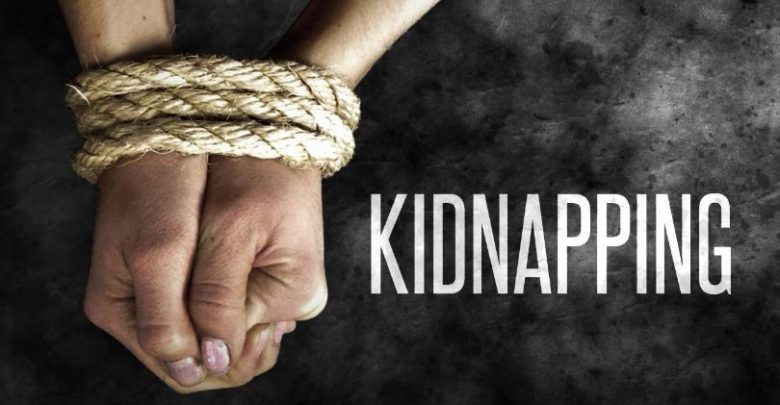National
Lawyers Differ On Bill To Ban Ransom Payment

Mixed reactions by lawyers have greeted the proposed bill by the Senate to proscribe ransom payment to kidnappers. Under the proposal, anyone who pays ransom would be guilty of a felony and liable to 15 years in jail.
Some lawyers in Lagos on Friday kicked against the proposed bill while others commended the lawmakers for thinking outside the box to curb the menace.
The bill seeks to prohibit the payment and receipt of ransom for the release of a kidnapped, wrongfully imprisoned or confined person.
In an interview with the News Agency of Nigeria (NAN), Mr Chukwuemeka Nwuli of the Ikeja Branch of the Nigeria Bar Association (NBA) stated that the proposed ransom bill could be seen to blame victims for their “natural human survival reactions“.
He said that the government could be misconstrued to be punishing the victim’s family because that might be their only means of getting their kidnapped family member back.
Nwuli urged the Senate to look into bills that would fight kidnapping from a security point other than introducing laws that would cause more pains on victims’ family.
Mr Nnamabia Charles, a technology law expert, told NAN that the provision of security should be one of the most important goals Nigerians expect from their government.
He pointed out that the proposed bill resulted from the recent immense pressure the government has been under to reform its security apparatuses and improve the safety of lives and property.
“Due to the increasing number of kidnapping cases in the country, the National Assembly in 2021 commenced debate on punishing citizens caught paying ransom to kidnappers.
“This has caused a national debate as to this bill, some see it as a case of chen the devil and the deep blue sea.
“Do you seat back and do nothing while your loved one is held up and tortured or do you simply meet the demands of the kidnappers and secure the release of your loved one?
“The position of the 1999 Constitution (as Amended) mandates the government to secure lives and properties but going a step further by imprisoning those who pay for the release of their loved one is simply over-reacting.
“The government should rather deploy resources to curb the terrorist activities and vigorously combat insurgency in Nigeria as a whole.
“It will be safe to suggest that this bill is not in the best interest of Nigerians,’’ Charles said.
On the other hand, Miss Ngozi Godson, another lawyer, commended the government for taking action against kidnapping.
She said that the amount being paid to kidnappers has been exorbitant and was on the rise as kidnapping has become a beneficial venture.
“This proposed bill will put an end to kidnapping or at least slow the pace; once those criminals realise that nobody is paying anymore, they will stop.
“These are desperate measures to better our country, just like the recent bill that was passed in Lagos to curb bribery and corruption.
“I will cautiously compare the proposed bill to the 14 years imprisonment imposed on receiving stolen property under Section 328 of the 2015 Criminal Laws of Lagos State.
“That law is there to stop stealing by restricting the movement of stolen things, stealing itself only carries three years jail time,” she said.
The Terrorism Prevention (Amendment) Bill, 2021, which scaled Second Reading during plenary is sponsored by Sen. Francis Onyewuchi of Imo East Senatorial District.
The bill seeks to substitute Section 14 of the Principal Act with a new section.
The new section reads, “Anyone who transfers funds, makes payment or colludes with an abductor, kidnapper or terrorist to receive any ransom for the release of any person who has been wrongfully confined, imprisoned or kidnapped is guilty of a felony and is liable on conviction to a term of imprisonment of not less than 15 years.”
At the end of the Second Reading, the bill was referred by the Senate President, Alhaji Ahmad Lawan, to the Committee on Judiciary, Human Rights and Legal Matters for further legislative work. (NAN)
Send Us A Press Statement Advertise With Us Contact Us
And For More Nigerian News Visit GWG.NG

